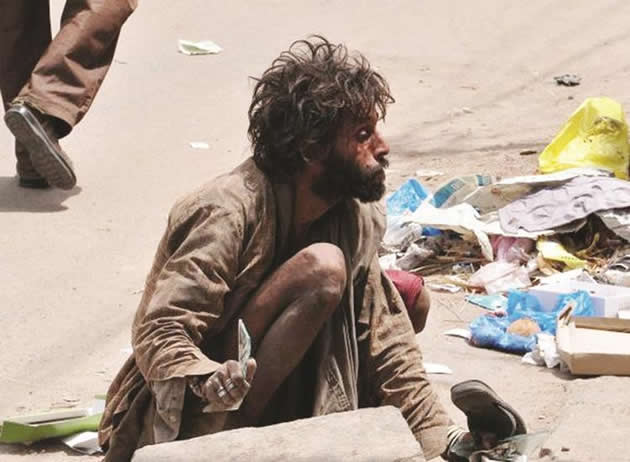Who is responsible for the mentally challenged?

 Vaidah Mashangwa
Vaidah Mashangwa
THEY roam the streets, they eat from the dustbins and sleep on pavements and disused buildings. Who cares about them? Generally, the public places a stigma on mentally challenged persons just as it does on people living with disabilities. With early detection, training and hospitalisation, the mentally challenged can still be integrated back into society.
A long time ago, it was fully expected that children would assume responsibility for parents who had become dependent because of age as well as uncles, aunts and cousins who had come to a dependent state.
This pattern was generally based on the ability to absorb new dependents into one’s household, under one roof. This ability by family members diminished as families became part of the urban mass where household units are now constructed for the small and immediate family except, of course, the low density areas.
The mobility that has come with our industrial economy and the urbanisation has fragmented large families and has made it difficult for people to assume responsibility for others especially the aged, mentally challenged and people living with disability. Some children have even resorted to sending their own parents to old people’s homes when they have decent work and capable of looking after their own parents.
Furthermore, family ties have also been loosened with husbands, wives and children separated for years. There is no longer the feeling of responsibility for members of the family beyond the immediate household. The legal and moral responsibility of children for their aged parents and siblings living with disability and the mentally challenged family members has blurred. More concentration is being placed on providing a good home and a good education for one’s children.
The mentally retarded are those who are born with such low powers of intelligence that they can never make a normal adjustment to life and society. The IQ serves as a kind of rough standard for mental retardation.
There are those persons with an IQ below 25, an IQ of 25 to 50 and 50 to about 70. Those with an IQ of 25 have intelligence of less than the average three year old. Consequently these persons cannot take care of their most simple tasks, learn any skills or utter more than a few words. An IQ or intelligence quotient is a score derived from one of several standardised tests designed to assess human intelligence.
Those with an IQ of 25 to 50 have the intelligence of a child from three to seven years. They can manage their bodily needs, can speak or even read simple sentences and can learn certain elementary tasks, none of which however, are ordinarily economically useful.
Generally these persons need constant supervision.
Those with an IQ of 50 to 70 have the intelligence of an eight to 10 or 11 year old. It is possible for them to learn certain economically useful manual skills which can make them self-supporting. However their social adjustment is poor and they often can be victimised or led into antisocial behaviour by others.
It is estimated that not more than half and probably fewer of the cases are hereditary in nature. Brain damage may take place during pregnancy through certain illnesses of the mother or in early years through prolonged fever illnesses or through physical injury. Excess fluids in the brain may also cause mental deficiency.
Besides the mentally retarded, there are those persons who are mentally challenged. Hospitalisations of the mentally challenged persons assist greatly in reducing the severity of the problem. In a number of cases they are left to roam the streets without any care from the family members. It is estimated that more women than men are mentally challenged because of the multiple roles they play in society hence they are normally under severe stress and depression. Some women face great marital problems and usually they pretend that things are normal when they are not.
Ingutsheni Hospital in Bulawayo is one good example of some of the psychiatric hospitals in the country and the general populace should take advantage of the institution.
Most people are not aware that if these people were working, then they were going to contribute to government revenue through taxes. There is therefore need to assist them in the best possible manner. The other problem is that some employers are reluctant to employ some people with a history of mental illness even if they fully recover.
About 80 percent of all first admissions to mental hospitals are termed psychotic. Generally, these mentally challenged are referred to as insane. The persons are generally depressed and agitated, have low mental capacity, have persistent hallucinations, incoherence, extreme stupor and at times attempts at suicide or sudden acts of violence.
There is no cure for the mentally retarded. At times they need special training and care. The children can be tested by the Schools Psychological Services Department to enable placement in special schools. These children need special courses of study involving simplified lessons in basic subjects and special training in manual skills. Specially trained teachers are required and small classes produce good results. Riverside Stimulation Centre is one such institution.
But most private schools for the mentally retarded are too expensive for most families and most parents of such children feel there is need for government schools of this nature. Institutionalisation at times is called for when the home is incapable of caring for such children but most parents have financial challenges.
Guidance for the parents of the mentally retarded is still an largely unmet need. Unwarranted fears, guilt and shame on the part of the parents often prevent the fullest development of these children. Some parents still try to fit these children into conventional schools without much success. Some parents also try to hide and isolate such children from society thereby causing more harm than good.
Tranquilising drugs have been mostly used in the treatment of the mentally challenged persons. The cost of psychiatric treatment is generally high and most parents cannot bear the full costs of total and prolonged hospitalisation and hence most of them are attended to in government hospitals where the bulk of this expense is borne by government.
Parents should make early detection of any abnormalities in their children so that appropriate action is taken to correct the situation.
Another approach to primary prevention of mental illness is through the development of positive mental health. This is achieved through the ability to maintain an even temper and socially considerate behaviour and a happy disposition. Depression should be avoided at all costs.
- Vaidah Mashangwa is the Provincial Development Office, Bulawayo, in the Ministry of Women Affairs, Gender and Community Development. She can be contacted on 0772111592 email vmashangwa@ gmail.com










Comments